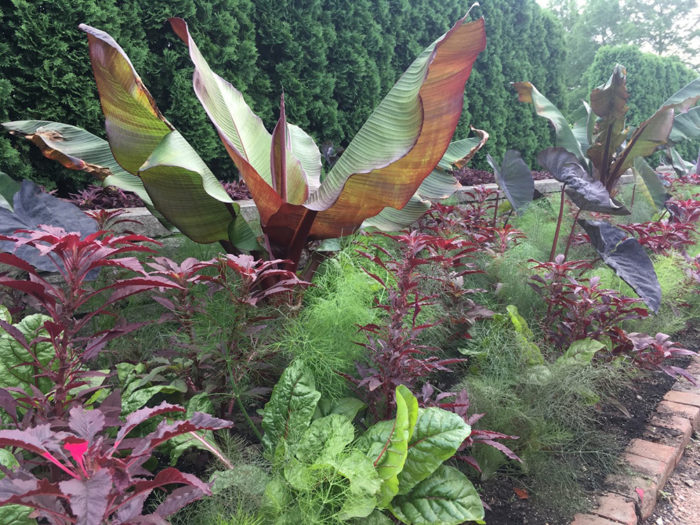
Hot and humid Midwestern summers allow us to luxuriate in a taste of the tropics in the garden. Although tropical flowers in red, orange, and yellow can provide a fiery burst, it’s the color and texture of foliage that carry the day in creating a tropical look. You can create your own tropical foliage scheme in full sun or deep shade, and these leafy tropicals often tolerate a bit of neglect in comparison to more floriferous designs. Overwintering tropical foliage plants either by growing them indoors or letting them go dormant means they can live on to provide an increasingly bold statement in subsequent years. Looking to breeze through summer heat with tropical foliage? Create a lush tropical look in your garden with these selections that thrive in the Midwest.
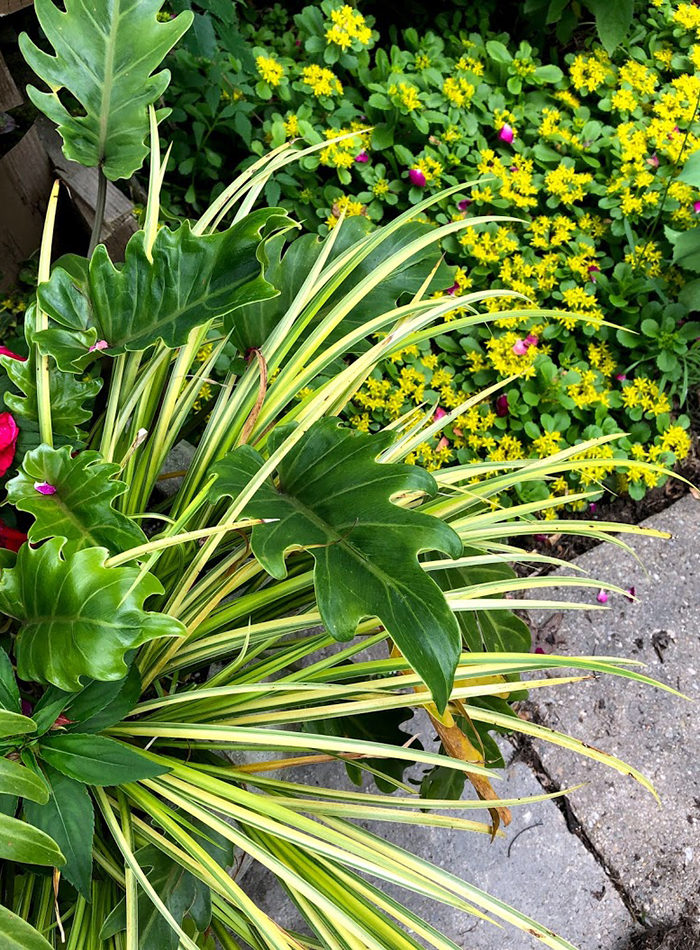
Variety is the spice of life
Even an all-green color palette looks amazing when leaf form, texture, and scale are accentuated. Familiar tropicals like elephant ears (Alocasia spp. and cvs., Zones 10–11 and Colocasia spp. and cvs., Zones 6–11) and bananas (Musa spp. and cvs., Zones 5–12 and Ensete spp. and cvs., Zones 8–12) have round, shiny leaves. This can be accentuated by the spiky forms of easy-care ornamental gingers. Shell ginger (Alpinia zerumbet ‘Variegata’, Zones 8–10) sports streaked chartreuse and apple green leaves, while red butterfly ginger (Hedychium greenii, Zones 8–10) combines an olive-colored leaf surface with a burgundy leaf underside. Don’t overlook Midwestern “tropical” options: annual fennel (Foeniculum vulgare, Zones 4–9) and Swiss chard (Beta vulgaris, Zones 2–11) look amazing when paired with true tropicals. Smaller-scale leaves complete the scene as ground covers or “spillers” in container plantings. Creeping wirevine (Muehlenbeckia axillaris, Zones 6–9) weaves tiny round leaves among other plants, while the foliage of ‘Ogon’ sweet flag (Acorus gramineus ‘Ogon’, Zones 5–9) is a welcome sight spilling over the edge of any pot.
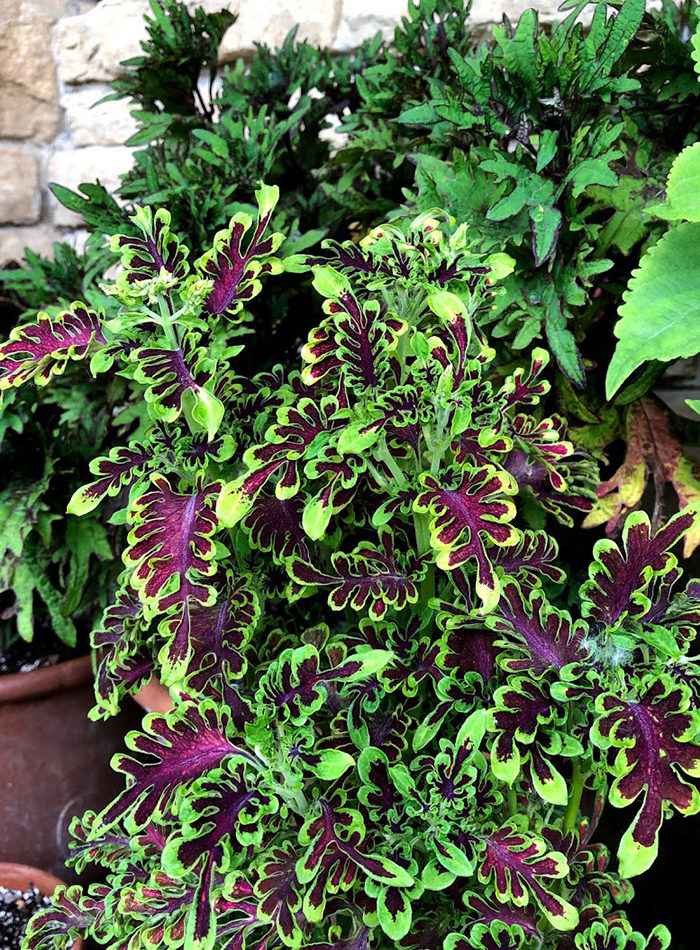
There is a coleus for every occasion
Everyone has a soft spot for coleus (Plectranthus scutellarioides and cvs., Zones 10–11), but why? Coleus’s incredible variety of color combinations can tie together any plant palette. Newcomers in the Under the Sea® series feature both bright colors and intricate, seaweed-like leaves. However, other foliage options offer similarly awesome color combinations. Brazilian Red Hots™ Joseph’s coat (Alternanthera dentata ‘Brazilian Red’, Zones 10–11) is a favorite for its mix of burgundy and pink, and bloodleaf plant (Iresine spp. and cvs., Zones 10–11) comes in both hot pink (‘Blazin’ Rose’) and bright green (‘Blazin’ Lime’). Varieties of Acalypha (Acalypha spp. and cvs., Zones 10–11) come in a multitude of colors. All these plants grow quickly to take advantage of comparatively short Midwestern summers.
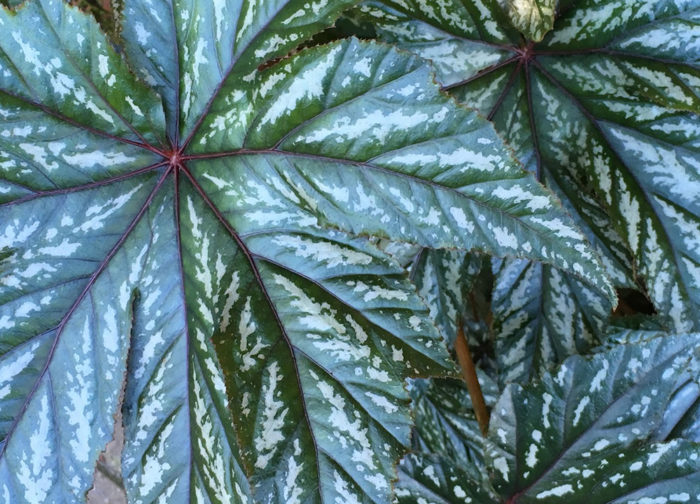
Embrace your dark side
Dark purple or black foliage dotted among hot colored plantings provides welcome contrast and prevents combinations from becoming too glaring. ‘Gryphon’ begonia (Begonia ‘Gryphon’, Zones 8–10) is a favorite; as a seed-grown plant it is both affordable and vigorous once planted. Its majestic palmate leaves are ebony and streaked with silver, and it overwinters well as a houseplant. Make a bold statement with the purple, black, and silver leaves of Persian shield (Strobilanthes dyerianus, Zones 10–11), or try the dissected dark leaves of Black Lace® elderberry (Sambucus nigra ‘Eva’, Zones 4–7) for a winter-hardy option.
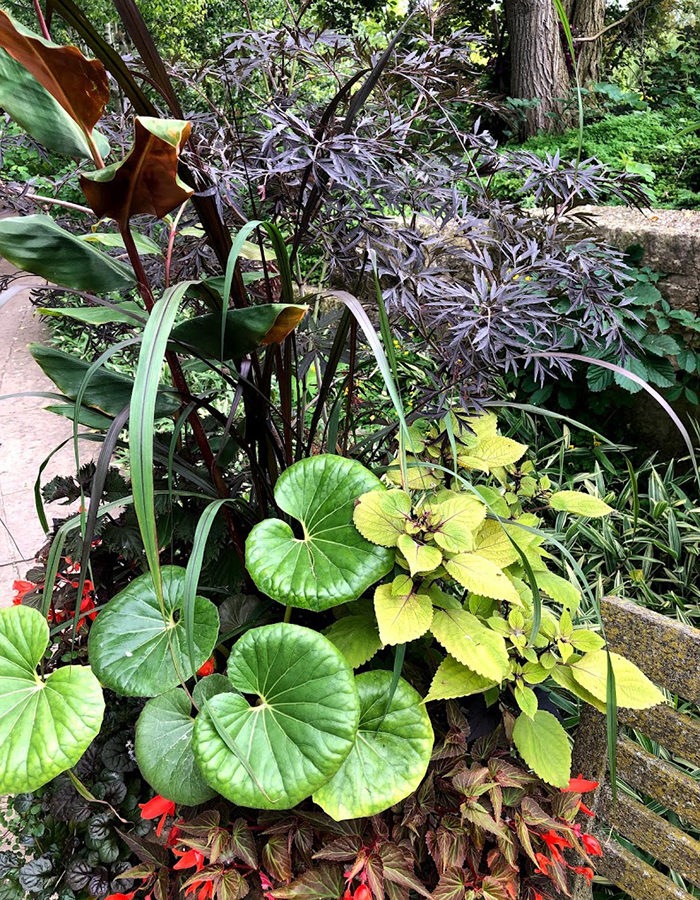
You can use symmetry to provide a sense of order and design among these tropicals in your garden. Or a statement container with a single plant can be a great focal point. Within the jungle-like riot of color and form among leafy tropicals, viewers appreciate moments of visual quiet to anchor their gaze.
—Erin Presley is a horticulturist at Olbrich Botanical Gardens in Madison, Wisconsin.
Fine Gardening Recommended Products
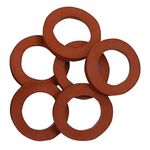
Gilmore Rubber Hose Washer 10pk
Fine Gardening receives a commission for items purchased through links on this site, including Amazon Associates and other affiliate advertising programs.
- Clip of 10
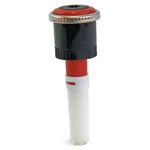
Hunter Industries MP-1000-90 Hunter Nozzle
Fine Gardening receives a commission for items purchased through links on this site, including Amazon Associates and other affiliate advertising programs.
- Double-pop technology flushes the nozzle during start-up and shutdown to prevent clogging
- Wind-resistant, multi-directional streams provide even coverage
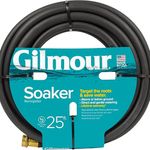
Gilmour 5/8" x 25' Round Weeper Soaker Hose
Fine Gardening receives a commission for items purchased through links on this site, including Amazon Associates and other affiliate advertising programs.


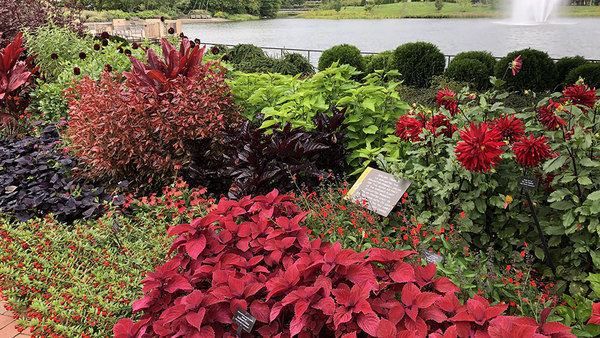



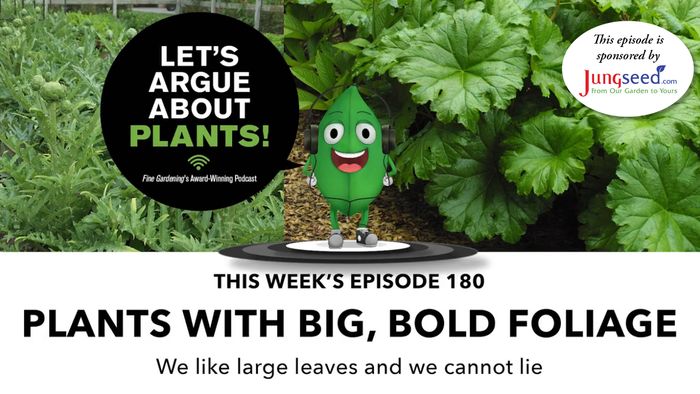
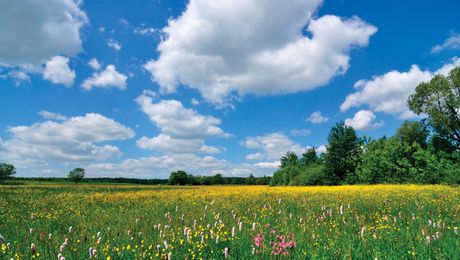
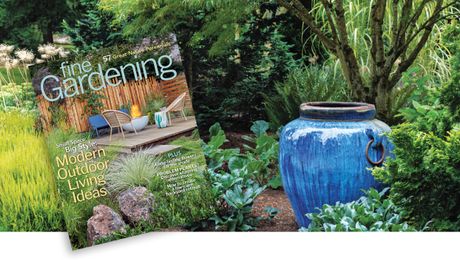










Comments
Log in or create an account to post a comment.
Sign up Log in